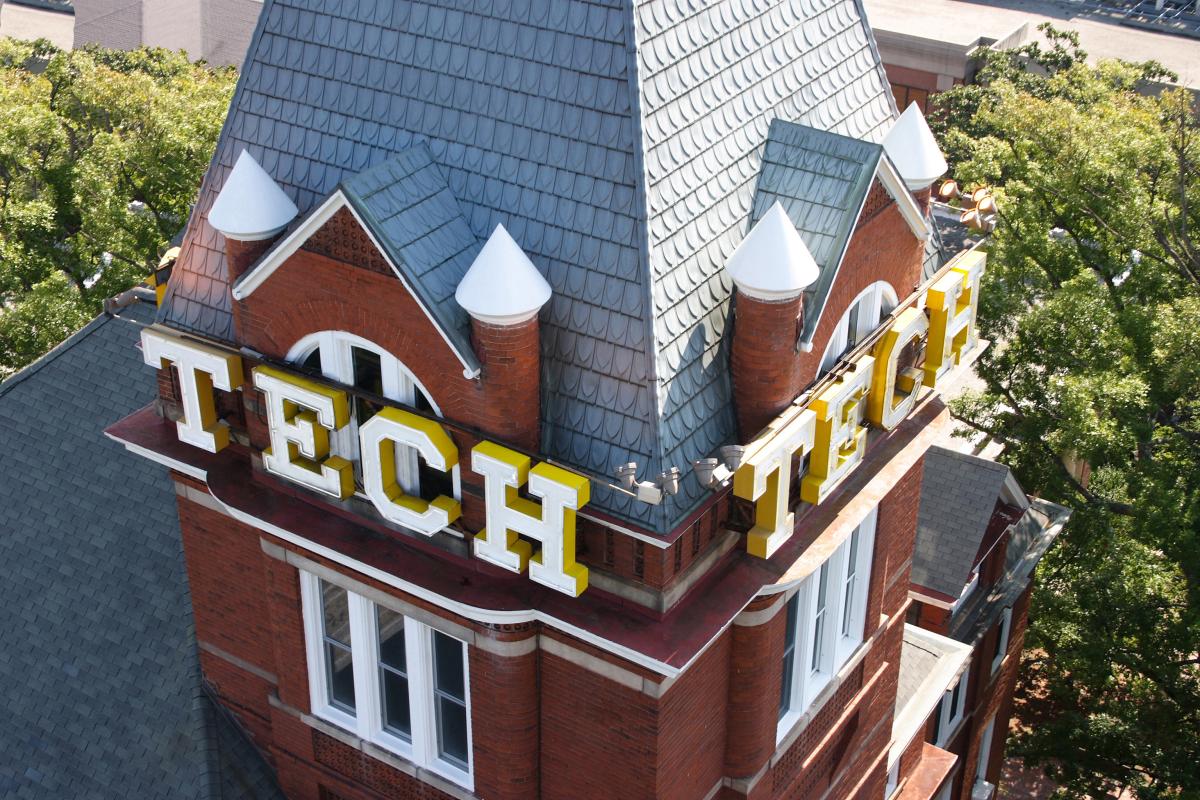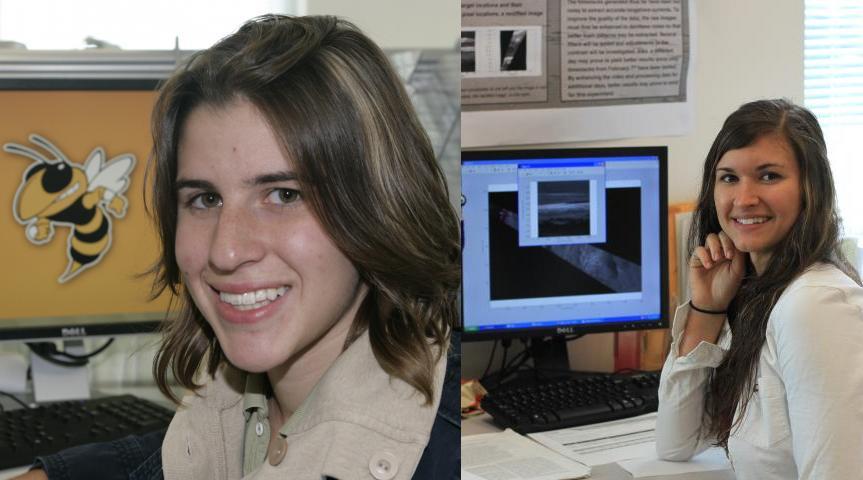
Two civil engineering graduate students at Georgia Tech Savannah are among an elite group to be awarded fellowships under the 2011 National Science Foundation (NSF) Graduate Research Fellowship Program (GRFP). The program recognizes and supports outstanding graduate students in NSF-supported science, technology, engineering and mathematics disciplines who have demonstrated outstanding abilities and accomplishments, as well as the potential to strengthen the vitality of science and engineering in the United States. Brittany Bruder and Stephanie Smallegan will utilize the fellowships to further their education and conduct vital coastal engineering research.
Bruder and Smallegan are the first Georgia Tech Savannah students to be awarded these highly competitive fellowships. Both will receive an annual stipend of $30,000 that is renewable for three years, plus $10,500 each year for educational allowances. Applicants for the fellowship program submit a proposal to the NSF, which are reviewed by a panel of scientists, mathematicians, engineers and other experts in graduate education. Proposals must demonstrate how the student's research will enhance scientific and technical understanding, while benefiting society.
Bruder, a Ph.D. candidate in civil engineering at Georgia Tech Savannah who obtained her undergraduate degree from Columbia University, plans to study the applicability of tidal streams as a renewable energy source in Coastal Georgia while concurrently researching new tidal turbine technologies. Smallegan, who was recently inducted into the national engineering honor society Tau Beta Pi, earned her undergraduate degree from Georgia Tech Savannah and has continued her Ph.D. level studies at the campus. Smallegan’s research will utilize video observations of nearshore processes at Cape Hatteras, N.C. to address the continual shaping of coastlines and the need for a prediction methodology of future shorelines in order to provide sustainable coastal management.
